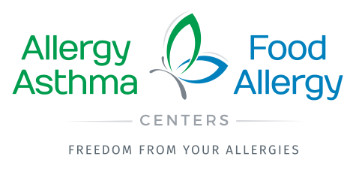Allergists have suspected for years that early introduction of foods likely decreases the development of food allergies. The LEAP (Learning Early About Peanut Allergy) study published in the New England Journal of Medicine in February 2015, definitively showed that early introduction and regular consumption of peanut (approximately 2 teaspoons of peanut butter 3 days per week) dramatically decreases the risk of developing peanut allergy by about 80%. Since the study was published, new guidelines were also released with the following recommendations:
- Children at the highest risk of developing peanut allergy– those with severe eczema (atopic dermatitis) and/or egg allergy should have some form of testing to evaluate for the possible presence of peanut allergy. If testing is negative, home introduction or a supervised feeding can be done, and if the child tolerates peanut, they should regularly consume approximately 2 teaspoons of peanut butter at least three days per week. This process should start ideally between 4-6 months of age. If testing is positive, depending on the testing results and the comfort of the specialist, and office based food challenge to peanut may be done to determine if the infant is allergic before introduction at home is considered.
- Children in the moderate risk group– those with mild to moderate eczema and no egg allergy should start consuming peanut (about 2 teaspoons) three days per week starting around 6 months of age. These children do not necessarily need testing before peanut is introduced, which can be done at home.
- Children at low risk for peanut allergy- those without signs of eczema and without egg allergy can start consuming peanut when age appropriate and according to family and cultural preferences.
While formal recommendation #3 does not stress early introduction, it is important to note that there is no real downside to early introduction, and delaying introduction even in those without eczema or egg allergy could potentially lead to an increase in developing peanut allergy compared to those who introduce early.
A question parents often have is how peanut can be introduced at home. The video below features Dr. Ruchi Gupta, one of the leading experts in food allergy, discussing home introduction of peanut. We hope you find this helpful!
If your infant or toddler is found to be allergic to peanut, do not despair. There is good recent evidence that early oral immunotherapy (OIT)/desensitization to peanut has very good outcomes (over 90% success rate when done correctly and carefully) and is safe. If you would like more information on OIT, see our Food Allergy Center of St. Louis page.
